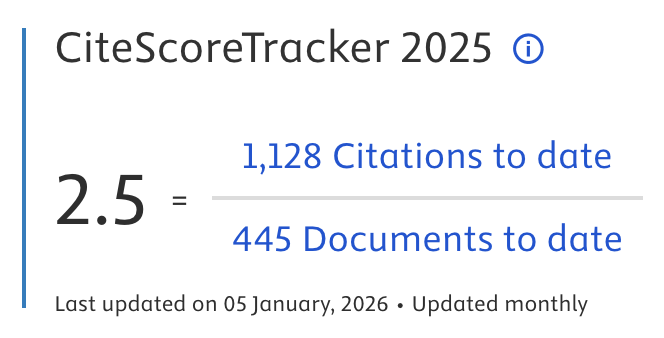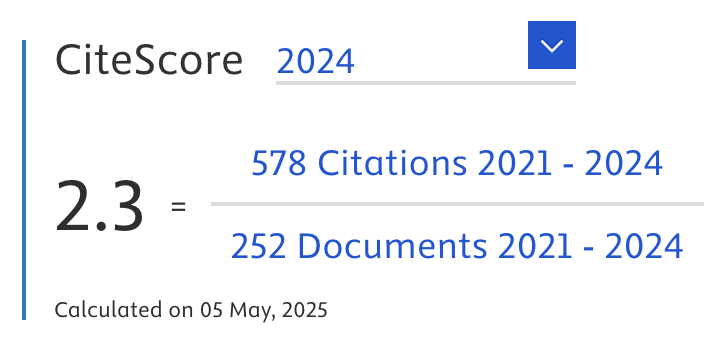Optimizing The XGBoost Model with Grid Search Hyperparameter Tuning for Maximum Temperature Forecasting
Abstract
This study presents a novel comparative approach to maximum temperature forecasting in Surabaya, Indonesia, by integrating Extreme Gradient Boosting (XGBoost) with Grid Search Hyperparameter Tuning and benchmarking it against Autoregressive Integrated Moving Average (ARIMA) and Neural Prophet models. The main idea is to evaluate the capability of XGBoost in capturing nonlinear patterns in environmental time series data, which traditional models often fail to address. Using 15,388 historical daily maximum temperature records from the BMKG Juanda weather station spanning 1981–2022, the objective is to identify the most accurate predictive model for short- and medium-term forecasts. The modeling process involved four stages: data acquisition, preprocessing, training, and evaluation, with performance assessed using Mean Absolute Error (MAE) and Root Mean Squared Error (RMSE). The findings show that, after hyperparameter tuning, XGBoost achieved the best performance with MAE = 0.32 and RMSE = 0.65, outperforming ARIMA (MAE = 0.85, RMSE = 1.20) and Neural Prophet (MAE = 0.70, RMSE = 0.98). Prediction results for 2025 indicate peak maximum temperatures in January, October, and November, aligning with recent climate patterns. The contribution of this research lies in demonstrating the superiority of a tuned XGBoost model for complex environmental datasets, offering a practical tool for urban climate planning, agricultural scheduling, and heatwave risk mitigation. The novelty of this work is the systematic integration of Grid Search-based optimization with XGBoost for meteorological forecasting in a tropical urban context, producing higher accuracy than both classical statistical and modern hybrid time series methods. These results highlight the model’s adaptability and potential for broader climate-related applications, with future research recommended to incorporate additional meteorological variables such as humidity and wind speed for even greater predictive capability.
Article Metrics
Abstract: 586 Viewers PDF: 613 ViewersKeywords
Full Text:
PDFRefbacks
- There are currently no refbacks.

Journal of Applied Data Sciences
| ISSN | : | 2723-6471 (Online) |
| Collaborated with | : | Computer Science and Systems Information Technology, King Abdulaziz University, Kingdom of Saudi Arabia. |
| Publisher | : | Bright Publisher |
| Website | : | http://bright-journal.org/JADS |
| : | taqwa@amikompurwokerto.ac.id (principal contact) | |
| support@bright-journal.org (technical issues) |
 This work is licensed under a Creative Commons Attribution-ShareAlike 4.0
This work is licensed under a Creative Commons Attribution-ShareAlike 4.0





.png)